Visual and Auditory Stimulation Using Animation
 In the modern educational landscape, the fusion of visual and auditory elements, fused with animation is reshaping the way we teach and learn
In the modern educational landscape, the fusion of visual and auditory elements, fused with animation is reshaping the way we teach and learn. This article explores the profound impact of these techniques on enhancing learning experiences.
The Power of Visual Learning Using Animation
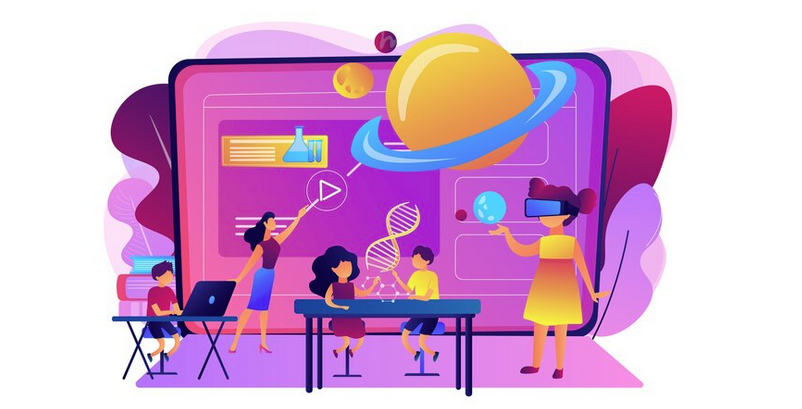 Visual learning harnesses the cognitive strength of images, diagrams, and other visual aids to enhance understanding
Visual learning harnesses the cognitive strength of images, diagrams, and other visual aids to enhance understanding. It's based on the premise that people remember and comprehend information more effectively when presented visually.
Multisensory Learning
Multisensory learning takes visual and auditory elements to create a richer educational experience. This approach leverages the power of multiple senses, contributing to cognitive development and better understanding.
Enhancing Cognitive Skills
The fusion of visual and auditory stimulation significantly enhances cognitive skills. By engaging multiple senses, learners can process and retain information more effectively, resulting in improved educational outcomes.
The Role of Auditory Stimulation
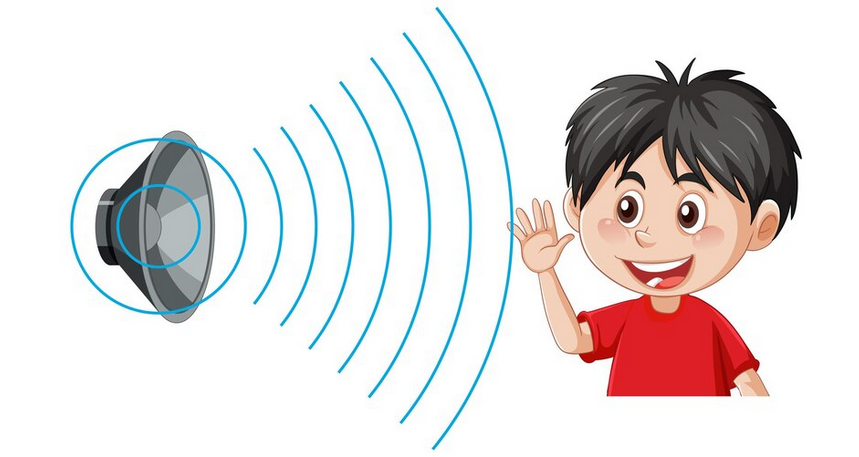 Auditory stimulation involves the use of sounds, spoken words, and auditory cues
Auditory stimulation involves the use of sounds, spoken words, and auditory cues to convey information effectively.
Auditory Perception and Learning Styles
Understanding
auditory perception is crucial in accommodating different learning styles. Some individuals thrive in auditory environments and are more receptive to auditory stimuli.
Audio-Visual Stimulation
The combination of audio and visual elements in
animated videos provides a holistic learning experience. It maximizes comprehension and retention, making it a crucial tool in education.
Animated Videos in Education
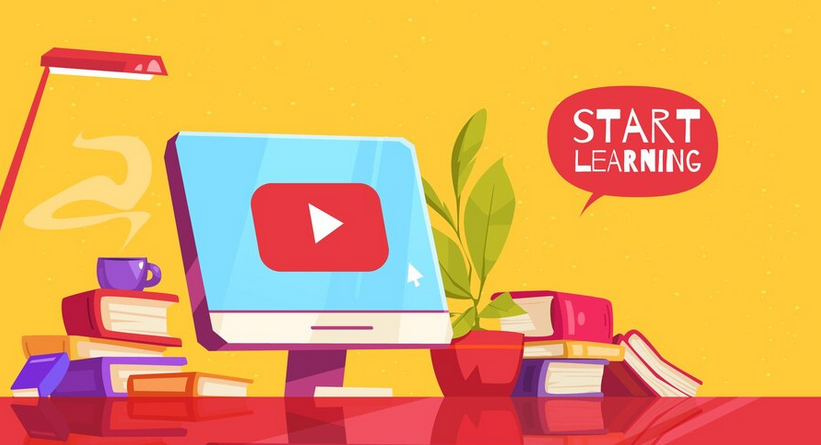 Animation has become essential in modern pedagogy,
Animation has become essential in modern pedagogy, redefining the way we teach and learn.
Video Learning in Educational Techniques
Video animation learning is a dynamic educational technique that incorporates animated videos to explain complex concepts and make learning engaging. It's a game-changer, particularly in the digital age.
Animated Learning Materials
Animated learning materials such as
whiteboard animations are designed to cater to a diverse audience. They offer a versatile approach to education and captivate learners of all ages.
Video Integration in Learning
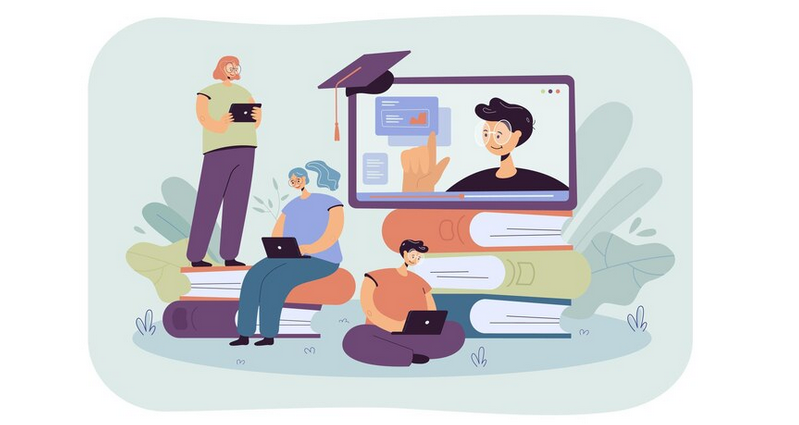 Video integration is the forefront of modern education
Video integration is the forefront of modern education, involving the incorporation of animated videos to enhance learning experiences.
Video-Based Instruction
Video-based animation instruction combines visual and auditory elements to create a dynamic learning environment. It is particularly effective in
e-learning platforms.
The Impact of Multimedia Education
Multimedia education utilizes various formats, including animated videos, to deliver content. This multimedia approach keeps learners engaged and enhances understanding.
Educational Video Animation as Dynamic Teaching Tools
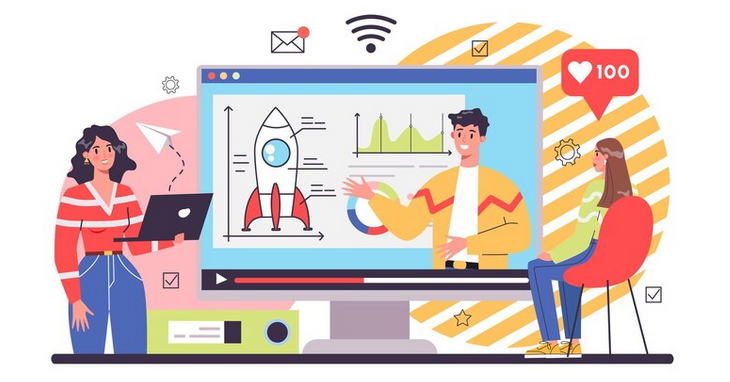 Educational videos are dynamic teaching tools
Educational videos are dynamic teaching tools with the potential to capture and sustain students' attention.
Effective Teaching Methods
Incorporating
animated educational videos in the classroom has proven to be an effective teaching method. These videos provide an innovative way to deliver information, making complex topics more accessible to students.
Visual Aids for Improved Learning
Visual aids, such as animated videos, are instrumental in improving learning. They simplify abstract concepts, making them more comprehensible to students of various learning styles.
Bridging the Gap with Audio-Visual Content
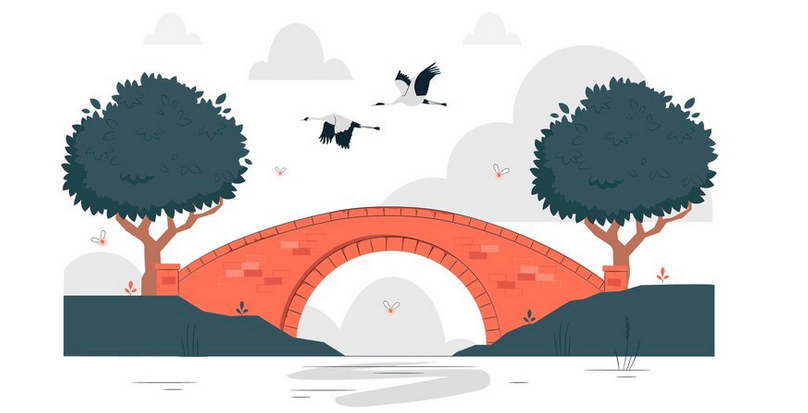 The combination of audio and visual content bridges the gap between traditional and modern teaching methods
The combination of audio and visual content bridges the gap between traditional and modern teaching methods, creating a more comprehensive learning environment.
Animated Educational Resources
Animated educational resources are versatile and adaptable, serving as valuable assets for educators in diverse settings.
Audio-Visual Stimulation
The use of audio-visual stimulation in education broadens the spectrum of engagement, allowing students to interact with the content in a way that speaks to their unique learning styles.
The Impact of Video-Assisted Learning
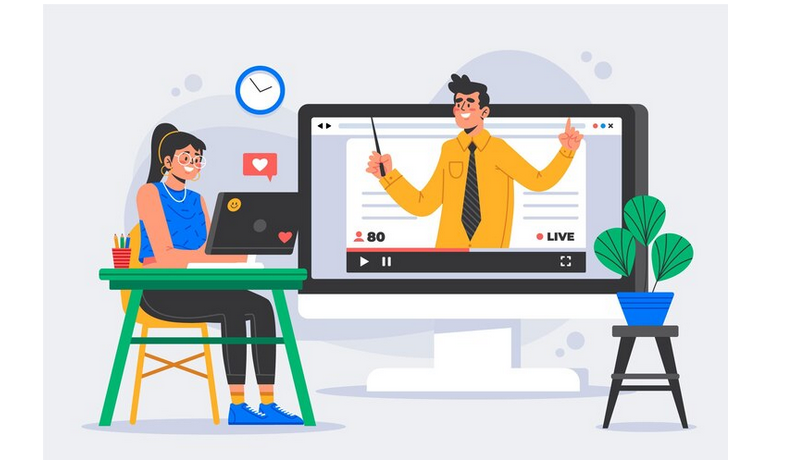 Video-assisted learning is reshaping the educational landscape
Video-assisted learning is reshaping the educational landscape, offering opportunities for improved comprehension and retention of knowledge.
Video Integration in Learning Environments
The integration of videos into learning environments is a game-changer, as it encourages active participation, discussion, and a deeper understanding of subjects.
Fostering Enhanced Learning Experiences
By offering a diverse range of educational content through videos and animated materials, learning experiences are further enriched, making education more appealing and effective.
The Role of Educational Psychology
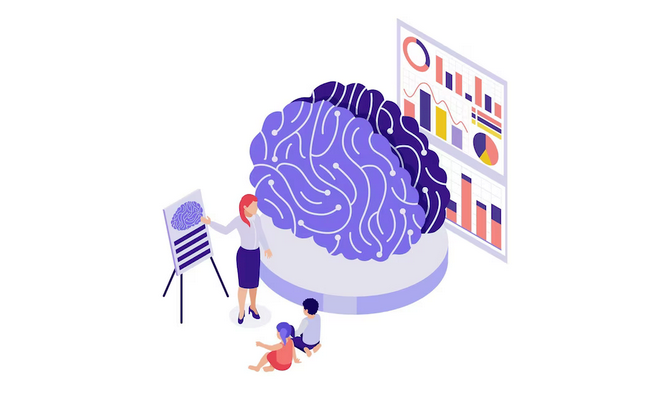 Educational psychology plays a crucial role in understanding
Educational psychology plays a crucial role in understanding how students learn and helping educators optimize teaching methods.
Brain-Based Learning
Brain-based learning strategies leverage cognitive science to design effective educational practices. The integration of visual and auditory elements aligns with the brain's natural learning processes.
Visual and Auditory Engagement
Visual and auditory engagement is crucial for sustaining learners' interest. It ensures that the educational content remains captivating and memorable.
The Future of Audiovisual Learning
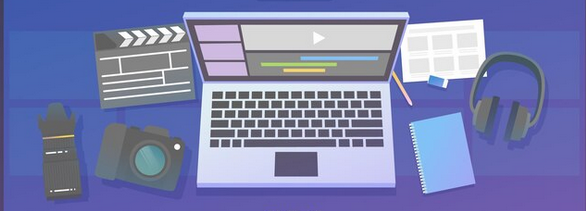 The future of education is intrinsically linked to the ongoing advancement of audiovisual learning,
The future of education is intrinsically linked to the ongoing advancement of audiovisual learning, marked by a pivotal shift in pedagogy.
Navigating the Digital Age
In the digital age, audiovisual learning is a navigational compass guiding students through a sea of information. It equips them with essential skills for the information-rich world they live in.
Lifelong Learning Opportunities
The adaptability of audiovisual learning creates lifelong learning opportunities. It ensures that learning isn't confined to the classroom but continues throughout one's life.
Empowering Students Through Technology

Technological integration empowers students in ways that were once unimaginable, shaping a generation of independent and resourceful learners.
Individualized Learning Paths
Technology allows students to chart individualized learning paths. They can access content at their own pace and revisit materials as needed, tailoring their educational journey.
Global Learning Communities
The digital realm has brought students from all corners of the globe together. They can collaborate, learn from one another, and participate in global discussions through
multimedia education.
The Quest for Inclusive Education
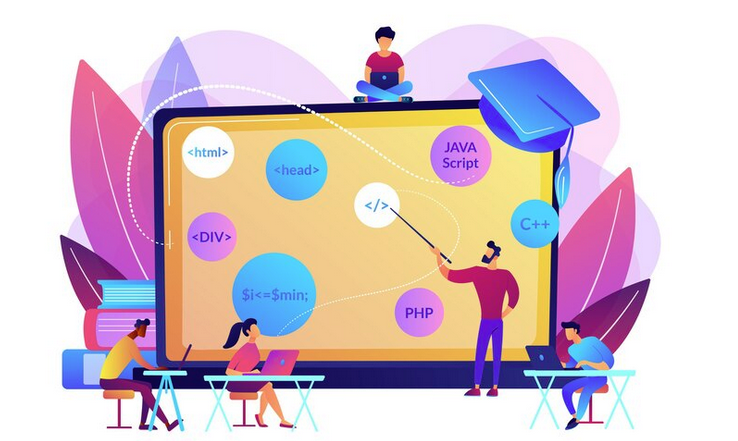 Inclusive education is a key aspiration for the educational community
Inclusive education is a key aspiration for the educational community, and audiovisual learning, enriched with animated videos, is breaking down barriers and creating an
inclusive learning environment for all.
Catering to Diverse Learning Styles
The multifaceted nature of audiovisual learning caters to diverse learning styles, ensuring that no student is left behind.
Accessibility and Equity
Technology-driven learning offers accessibility and equity, bridging the gap for students who may face geographical, physical, or socio-economic constraints.
The Way Forward
 The way forward involves a commitment to harnessing the full potential of visual and auditory stimulation
The way forward involves a commitment to harnessing the full potential of visual and auditory stimulation, combined with the dynamic nature of animated videos.
The Ongoing Evolution
The ongoing evolution of educational strategies reflects the adaptability of educators and the resilience of students. It showcases a commitment to providing the best possible learning experiences.
A Brighter Future for All
The power of visual and auditory stimulation, along with animated videos, is not just about education; it's about shaping a brighter future for all learners, regardless of age, background, or circumstance.
In an era where learning is not bound by conventional boundaries, the way forward includes a
promise of lifelong learning, a future that offers opportunities for students to thrive and educators to innovate.
As we navigate the ever-changing educational landscape, it's clear that these elements will continue to play an integral role in shaping the future of education, offering opportunities for students to excel, educators to inspire, and a brighter educational landscape for all.
Challenges and Opportunities
 While visual and auditory stimulation with animated videos presents numerous advantages,
While visual and auditory stimulation with animated videos presents numerous advantages, it's essential to acknowledge the challenges and seize the opportunities they bring to the forefront of education.
Adapting to Evolving Technologies
As technology evolves, educators must continually adapt to new tools and platforms for visual and auditory learning. This presents an opportunity for professional development and growth.
Addressing Accessibility
Ensuring that visual and auditory materials are accessible to all students, including those with disabilities, is a challenge that prompts innovation and the creation of more inclusive educational content.
Measuring Success
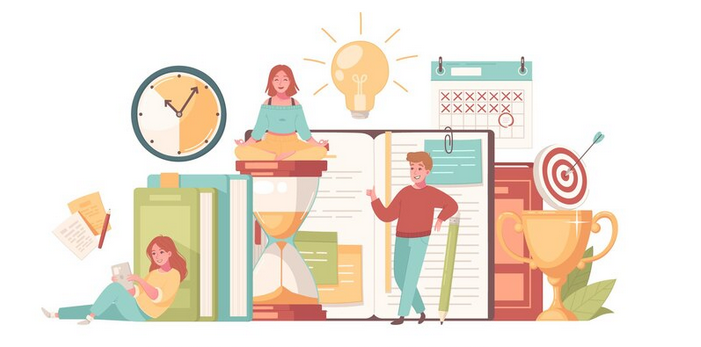 Assessing the impact of visual and auditory stimulation alongside animated videos in education is crucial
Assessing the impact of visual and auditory stimulation alongside animated videos in education is crucial for refining teaching methodologies.
Data-Driven Insights
Data analytics can provide valuable insights into how students engage with multimedia content, aiding in the development of more effective teaching strategies.
Student Outcomes
Measuring success should ultimately be linked to improvements in student outcomes, including better academic performance and a deeper understanding of subjects.
Collaboration and Innovation
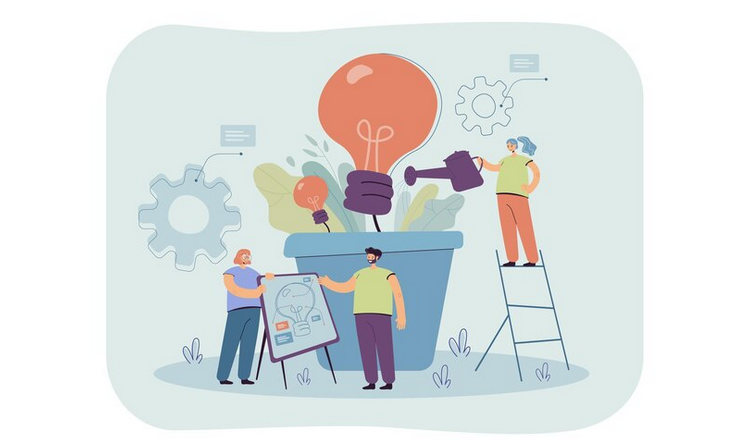 The future of education relies on collaboration and innovation,
The future of education relies on collaboration and innovation, which is propelled by visual and auditory stimulation with animated videos.
Collaborative Learning
Video-assisted animation learning fosters
collaborative environments, where students actively engage with their peers to deepen their understanding of the material.
Fostering Creativity
Multimedia education encourages students to think creatively and critically. It provides the tools for them to explore, create, and express their ideas in new and exciting ways.
Conclusion
In conclusion, the synergy of visual and auditory stimulation with animated videos is revolutionizing education. It's making learning a more engaging, inclusive, and adaptable experience.
As we navigate the digital age, it's clear that these elements will continue to play an integral role in shaping the future of education, offering opportunities for students to thrive and educators to innovate.
Article by
Nicole Delgado 2023 | CMO | Explainer Video Company |
Animated Explainer Videos
FAQs
Q1: What is visual learning?
A1: Visual learning is a cognitive style that emphasizes the use of images, diagrams, and other visual aids to comprehend and retain information. It relies on the idea that people often learn more effectively when information is presented visually.
Q2: What is auditory stimulation in education?
A2: Auditory stimulation in education involves the use of sounds, spoken words, and auditory cues to convey information effectively. It caters to students who are receptive to auditory learning styles.
Q3: How does animation enhance learning?
A3: Animated videos are dynamic teaching tools that simplify complex concepts, making learning more engaging and accessible. They combine visual and auditory elements, resulting in improved comprehension and retention.
Q4: What are some challenges in using animated videos for education?
A4: Challenges include adapting to evolving technologies, addressing accessibility for all students, and ensuring that educational content is engaging and inclusive.
Q5: How can educators measure the success of visual and auditory stimulation with animated videos?
A5: Success can be measured through data-driven insights, such as analytics on student engagement with multimedia content, and by assessing student outcomes, including improved academic performance and a deeper understanding of subjects.
Q6: What is the future of audiovisual learning?
A6: The future of education is closely linked to the continued development of audiovisual learning. It offers opportunities for lifelong learning, empowers students through technology, fosters inclusivity, and encourages collaboration and innovation.
Q7: How can I incorporate audio-visual techniques into my teaching methods?
A7: You can integrate audio-visual techniques by using animated videos, visual aids, and auditory cues in your lessons. Utilizing multimedia platforms and educational technology can also be instrumental in implementing these techniques.
Q8: What are some multimedia education resources for teachers and students?
A8: Multimedia education resources can include educational websites, e-learning platforms, online courses, and digital libraries that offer a variety of multimedia content, including video animation and interactive materials.
Q9: How can educators foster creativity in students through multimedia education?
A9: Encouraging students to explore, create, and express their ideas using multimedia content, such as animation and interactive platforms, can foster creativity and critical thinking.
Q10: How can students access multimedia educational materials for self-paced learning?
A10: Students can access multimedia educational materials through online platforms, educational websites, and digital libraries. These resources often allow self-paced learning and provide content in various formats, including animation.
 In the modern educational landscape, the fusion of visual and auditory elements, fused with animation is reshaping the way we teach and learn. This article explores the profound impact of these techniques on enhancing learning experiences.
In the modern educational landscape, the fusion of visual and auditory elements, fused with animation is reshaping the way we teach and learn. This article explores the profound impact of these techniques on enhancing learning experiences.
 Visual learning harnesses the cognitive strength of images, diagrams, and other visual aids to enhance understanding. It's based on the premise that people remember and comprehend information more effectively when presented visually.
Visual learning harnesses the cognitive strength of images, diagrams, and other visual aids to enhance understanding. It's based on the premise that people remember and comprehend information more effectively when presented visually.
 Auditory stimulation involves the use of sounds, spoken words, and auditory cues to convey information effectively.
Auditory stimulation involves the use of sounds, spoken words, and auditory cues to convey information effectively.
 Animation has become essential in modern pedagogy, redefining the way we teach and learn.
Animation has become essential in modern pedagogy, redefining the way we teach and learn.
 Video integration is the forefront of modern education, involving the incorporation of animated videos to enhance learning experiences.
Video integration is the forefront of modern education, involving the incorporation of animated videos to enhance learning experiences.
 Educational videos are dynamic teaching tools with the potential to capture and sustain students' attention.
Educational videos are dynamic teaching tools with the potential to capture and sustain students' attention.
 The combination of audio and visual content bridges the gap between traditional and modern teaching methods, creating a more comprehensive learning environment.
The combination of audio and visual content bridges the gap between traditional and modern teaching methods, creating a more comprehensive learning environment.
 Video-assisted learning is reshaping the educational landscape, offering opportunities for improved comprehension and retention of knowledge.
Video Integration in Learning Environments
The integration of videos into learning environments is a game-changer, as it encourages active participation, discussion, and a deeper understanding of subjects.
Fostering Enhanced Learning Experiences
By offering a diverse range of educational content through videos and animated materials, learning experiences are further enriched, making education more appealing and effective.
Video-assisted learning is reshaping the educational landscape, offering opportunities for improved comprehension and retention of knowledge.
Video Integration in Learning Environments
The integration of videos into learning environments is a game-changer, as it encourages active participation, discussion, and a deeper understanding of subjects.
Fostering Enhanced Learning Experiences
By offering a diverse range of educational content through videos and animated materials, learning experiences are further enriched, making education more appealing and effective.
 Educational psychology plays a crucial role in understanding how students learn and helping educators optimize teaching methods.
Educational psychology plays a crucial role in understanding how students learn and helping educators optimize teaching methods.
 The future of education is intrinsically linked to the ongoing advancement of audiovisual learning, marked by a pivotal shift in pedagogy.
The future of education is intrinsically linked to the ongoing advancement of audiovisual learning, marked by a pivotal shift in pedagogy.
 Technological integration empowers students in ways that were once unimaginable, shaping a generation of independent and resourceful learners.
Technological integration empowers students in ways that were once unimaginable, shaping a generation of independent and resourceful learners.
 Inclusive education is a key aspiration for the educational community, and audiovisual learning, enriched with animated videos, is breaking down barriers and creating an inclusive learning environment for all.
Inclusive education is a key aspiration for the educational community, and audiovisual learning, enriched with animated videos, is breaking down barriers and creating an inclusive learning environment for all.
 The way forward involves a commitment to harnessing the full potential of visual and auditory stimulation, combined with the dynamic nature of animated videos.
The way forward involves a commitment to harnessing the full potential of visual and auditory stimulation, combined with the dynamic nature of animated videos.
 While visual and auditory stimulation with animated videos presents numerous advantages, it's essential to acknowledge the challenges and seize the opportunities they bring to the forefront of education.
While visual and auditory stimulation with animated videos presents numerous advantages, it's essential to acknowledge the challenges and seize the opportunities they bring to the forefront of education.
 Assessing the impact of visual and auditory stimulation alongside animated videos in education is crucial for refining teaching methodologies.
Assessing the impact of visual and auditory stimulation alongside animated videos in education is crucial for refining teaching methodologies.
 The future of education relies on collaboration and innovation, which is propelled by visual and auditory stimulation with animated videos.
The future of education relies on collaboration and innovation, which is propelled by visual and auditory stimulation with animated videos.
Comments
Post a Comment